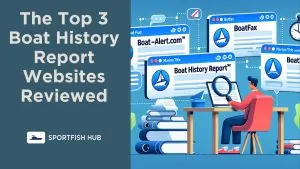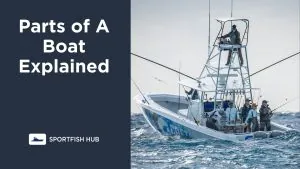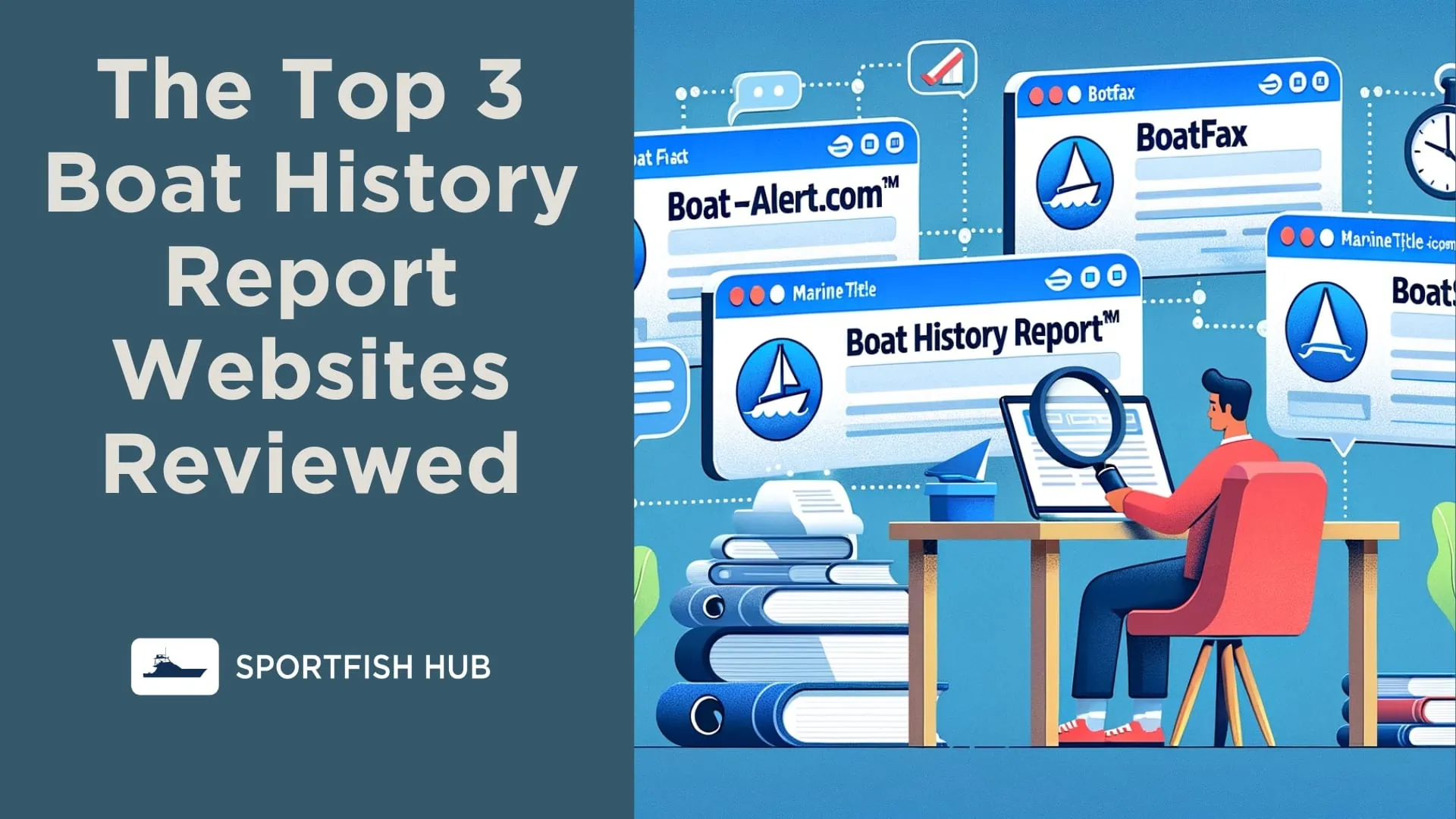If you find yourself in the position of buying a boat without a title, you’re not alone.
A lot of boat owners misplace the titles for their boats and even their boat registration and don’t bother to notice they’re missing until you’re buying the boat.
The good news is that there is usually a way to get a title for a boat without a title,
except when:
The owner took out a loan to purchase the boat and has yet to pay it off
or,
the boat is stolen!
Table of Contents
- Can you buy a boat and register it without a title?
- How To Get a Title For A Boat With A Bill Of Sale
- Getting A Title For A Boat Without a Bill of Sale
- Getting A Title For A Boat With No Title- Lost title
- States that do not require having a title for a boat:
- States that do require having a title for a boat:
- States that require a title based on the length of the boat:
- States with Special Requirments for Boat Titles:
- FAQ
Can you buy a boat and register it without a title?
Yes, you can buy a boat and register it without a title, and in many states, that process is quite simple.
However, in some other states, like Florida, you will need to show a title or the process becomes a bit more complicated.
How To Get a Title For A Boat With A Bill Of Sale
To get a title for a boat without a title, you will first need the Bill of Sale. This is essentially the receipt that you legally purchased the Vessel from the registered owner.
Note: Not every state will allow you to get a title with ONLY a Bill of Sale. (If the title has been lost, read our section below on lost titles)
You can download a Sample pdf Bill of Sale for Boats or even hand write your own. Either way, the Bill of Sale you use must include the following information in order to get a title:
- Names of The Buyer ad Seller
- Address of the Buyer and Seller
- The purchase price
- Detailed Boat Information:
- Make
- Model
- Year
- Color
- Hull Identification Number (H.I.N.)
- Boat’s Registration Number
- A list of any items being included in the sale
- Trailer (Include any registration, Safety Inspection, or ID numbers on the trailer)
- Fishing equipment
- Safety Equipment
- Covers
- If the seller makes any warranties or guarantees, list those as well
- Signatures of ALL PARTIES INVOLVED
- If you Co-Purchase with a business partner or a spouse, they must sign
- Signature by a notary (Only required in certain states, but it doesn’t hurt)
Getting A title from the DMV or Tax Collector
Now that you have your completed Bill of Sale, it’s time to head to the DMV or Tax Collectors Office. Depending on your particular state agency, you will need to bring the following:
- This Bill of Sale
- A Photo I.D.
- Picture of the Hull Identification Number
- Tax Certificate (Select States)
- And any other documents your state requires, which is probably a lot in a state like California!
- Money to pay your fees
- Manufacturer’s Certificate of Origin (New Boats in Certain States)
A title usually costs anywhere from $5 to $15 bucks.
Getting A Title For A Boat Without a Bill of Sale
There is no way I know that you can get a title for a boat that has no title without a Bill of Sale.
I strongly believe in this case, you can either test your luck by claiming the boat is homemade
or,
you will have to hunt down the seller and get the proper documentation you should already have.
Getting A Title For A Boat With No Title- Lost title
The most common reason a boat will not have a title will be that the seller (Or you) have lost it.
In this case,
you can usually head to your local DMV and apply for a lost title, or what we call in Florida a “Duplicate title.”
Here the state will void the original title and issue you a new legal title, which will usually be marked as a duplicate.
TIP: When you apply for a Duplicate Title for a boat, the original title becomes a useless piece of paper. Fraudsters sometimes use these to scam people, so beware!
States that do not require having a title for a boat:
- Arizona
- Colorado
- Connecticut
- Delaware
- Hawaii
- Kansas
- Alaska
- Louisiana
- Maine
- Georgia
- New Hampshire
- North Dakota
- Tennessee
- Wyoming
States that do require having a title for a boat:
- Oklahoma
- South Carolina
- New Mexico
- Rhode Island
- Utah
- Illinois
- Washington
- West Virginia
- Wisconsin
- Nevada
States that require a title based on the length of the boat:
- Florida (16ft and non-motorized)
- Montana (12 ft)
- New Jersey (12 ft)
- Oregon (12 ft)
- Texas (14 ft)
- Missouri (12 ft)
- South Dakota (12 ft)
- Massachusetts (14 ft)
- New York (14 ft)
- Minnesota (16 ft)
- Vermont (16 ft)
- Virginia (18 ft)
- Michigan (20 ft)
- Ohio (14 ft)
States with Special Requirments for Boat Titles:
- California – You must title the boat if it also has to be registered
- Indiana – If the boat was purchased before January 1986 by an Indiana citizen, it is treated as a lifeboat for a ship; it was valued at less than $3000 when it was new, or it was built for private usage and isn’t ever going to be sold.
- Michigan – The boat only needs a title if it has a permanent engine
- Maryland – A boat only needs to be titled if it also needs to be registered.
- Pennsylvania- Boats need a title if they are powered by an inboard motor, powered by an outboard motor, are 14 feet or longer, are currently titled in Pennsylvania, or are currently titled in another state when Pennsylvania becomes the state of primary use.
- Kentucky – Kentucky only requires a title if it is to be used in public; however, if it is being used on private property, he boat is exempt from a boat title.
FAQ
If you are registering a new boat, a bill of sale will be needed. If you are registering a Used boat, then a bill of sale and a copy of the boat’s previous registration certificate is required.
All vessels longer than 12 feet in NJ must be titled, and all titled vessels must be registered.
In Florida, there are no laws that allow for “Vessel Salvage Rights.” If you come across an abandoned vessel and want to claim ownership, you must adhere to the Statutes for Found Property. As per 705.102 FS, a person must inform law enforcement about the found property before starting the process of claiming it as their own.











